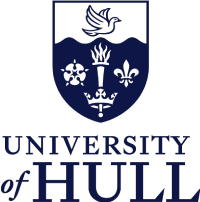About the Project
To celebrate the University's research successes, the University of Hull is offering this project supported by a full-time UK/EU PhD Scholarship or International Fees Bursary. It is one of a cluster of projects available as part of a significant investment into clinical research in cardiovascular, respiratory and metabolic medicine at Hull York Medical School's Hull campus.
Closing date: - 29th February 2016.
Studentships will start on 26th September 2016
Supervisor: Dr Simon Hart (contact [Email Address Removed])
Pulmonary fibrosis is a progressive incurable disease of older people with a prognosis worse than many cancers. Median survival is only about 3 years from diagnosis. There is a strong association between pulmonary fibrosis and autoimmune diseases including rheumatoid arthritis and scleroderma. However, the mechanisms responsible for driving lung scarring in autoimmune conditions are unknown, and immunosuppressive drug therapy, whilst effective for controlling joint and skin inflammation, has little or no effect on pulmonary fibrosis.
Our group has been investigating the role of interactions between the lung vasculature and endothelium, and circulating blood platelets, in pulmonary fibrosis. We have demonstrated that blood platelets from patients with pulmonary fibrosis are more responsive to stimulation (Crooks et al, PLoS One 2014;9:e111347), and that vascular endothelial cells can be activated in response to bleomycin (Williamson et al in preparation), a cytotoxic drug known to cause pulmonary fibrosis. We hypothesise that autoimmune diseases are associated with abnormalities of the lung endothelium and blood platelets that promote platelet-endothelial interaction and retention and activation of pro-fibrotic platelets within the lungs.
In this project the student will test our hypothesis by exposing pulmonary microvascular endothelial cells and platelets to autoantibodies that are found in the serum of patients with autoimmune diseases. Endothelial cell and platelet activation will be measured, and adhesion interactions will be examined in a flow chamber system. Promising mechanisms will be tested in a rodent model of pulmonary fibrosis, and confirmed by staining human lung pathology biopsy specimens.
This PhD studentship will contribute to research supported by a £50k bequest from the family of the late Kathleen Garthwaite, a former patient who suffered from pulmonary fibrosis associated with autoimmunity.
To apply for this post please click on the Apply button below.
In order to qualify for this scholarship you will require an undergraduate degree with at least a 2.1, or equivalent in a relevant subject.
Full-time UK/EU PhD Scholarships will include fees at the ‘home/EU' student rate and maintenance (£14,057 in 2015/16) for three years, dependent on satisfactory progress.
Full-time International PhD Fee Bursaries will include full fees at the International student rate for three years, dependent on satisfactory progress.
PhD students at Hull York Medical School follow modules for research and transferable skills development and gain a Masters level Certificate, or Diploma, in Research Training, in addition to their research degree.
Successful applicants will be informed of the award as soon as possible and by 30th April 2016 at the latest.

 Continue with Facebook
Continue with Facebook

